In 1987, Ferrari released the second part (288 GTO being the first) of their supercar lineage, the F40. For the next two years, it and its twin turbo, 2.9l, 471hp, V8 held the record for fastest production car in the world. This car also holds a special place in the heart of Ferrari fans because it was also the final car Enzo Ferrari himself commissioned before his death on August 14, 1988. To this day, the F40 is still regarded by many as one of the most raw supercars ever built. The F40 was on the cutting edge of technology at the time so it is no surprise that the body panels were made from aluminum as well as carbon fiber and Kevlar. While this was great from a performance standpoint, it makes detailing extremely tricky. Because most conventional paint depth gauges are made to measure the distance between the surface of the paint and the metal below, it is impossible to measure the paint level on a carbon-kevlar body panel due to the gauge being tricked by gelcoats. Couple that with the fact that it was painted by hand, using a single stage painting process and it is easy to see why the F40 is known to be infamously difficult to detail. A car with single stage paint doesn’t have a clear coat layer so when polishing out imperfections, some of the actual paint of the vehicle must be removed(true paint correction at its finest and most nerve racking). Many owners wont have their F40’s detailed because of these factors or with respects to the patina of the vehicle. Having worked on many high priced single stage Ferrari paints, we were confident that we could achieve the correction we were looking for without damaging the vehicle in any way. The single stage paint thickness does not allow for many intensive paint correction details on the vehicles lifespan, which is why it is the owners responsibility after the detail to upkeep the vehicle and wash the car properly to alleviate wash swirls.
The F40 uses lexan instead of traditional glass for man of the exterior windows including the rear windows pictured below and the bonnet cover. While much lighter then glass, they are also much more susceptible to swirl marks.
While this may look like orange peel in the paint, it is actually the weave of the carbon kevlar body work showing though.
Red Ferrari F40
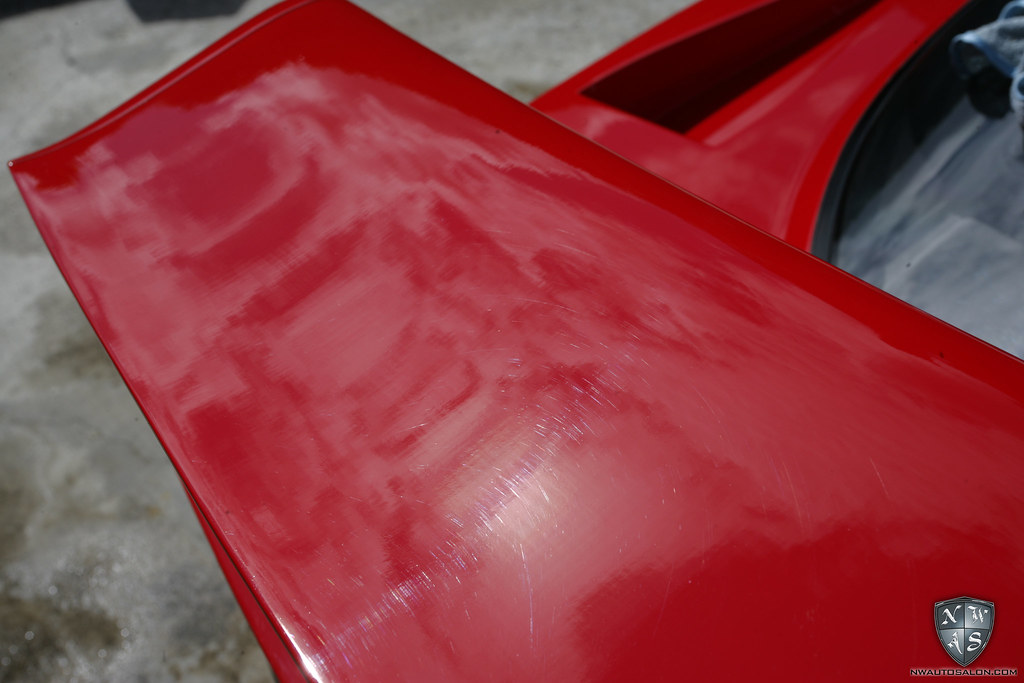
More swirls in the Lexan bonnet cover.
From the engine bay to the smallest part of the door sills, everything received its own special attention on this vehicle.
While such small parts as the inside of the doors may seem trivial, we made sure that every reachable inch of the car was polished.
Rear fender after polishing
Red Ferrari F40

Here you can see painters tape being used to cover any black plastic trim that would otherwise be stained during the polishing process.
Close up of the exposed carbon kevlar body and seats.
16M hiding in the back
Red Ferrari F40
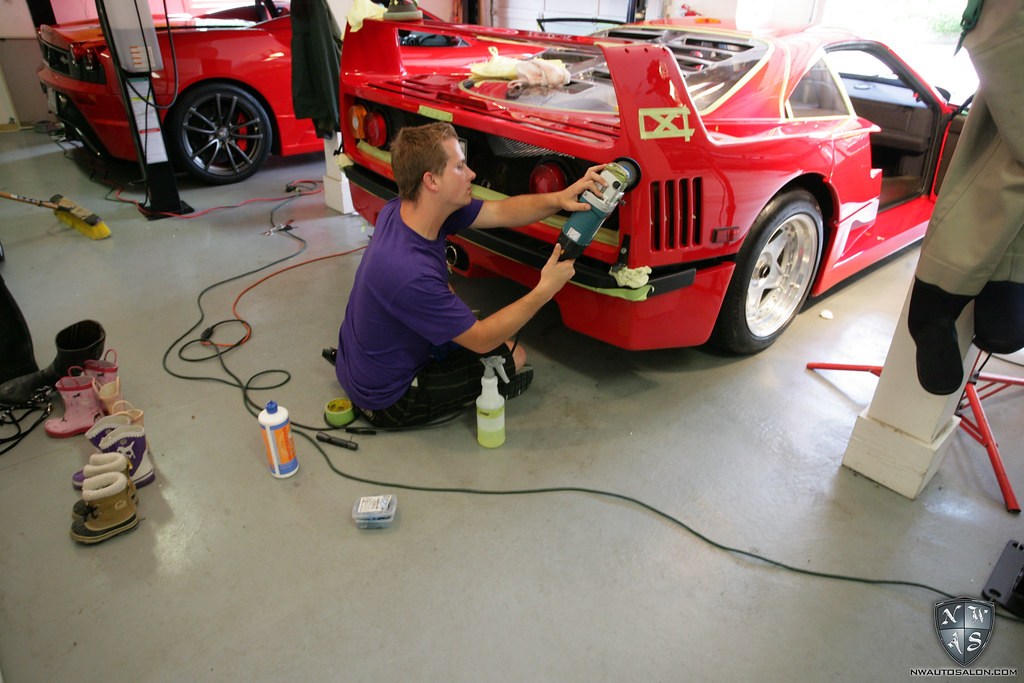
Finished shots
Check out our Flickr gallery for full res after shots from this write up
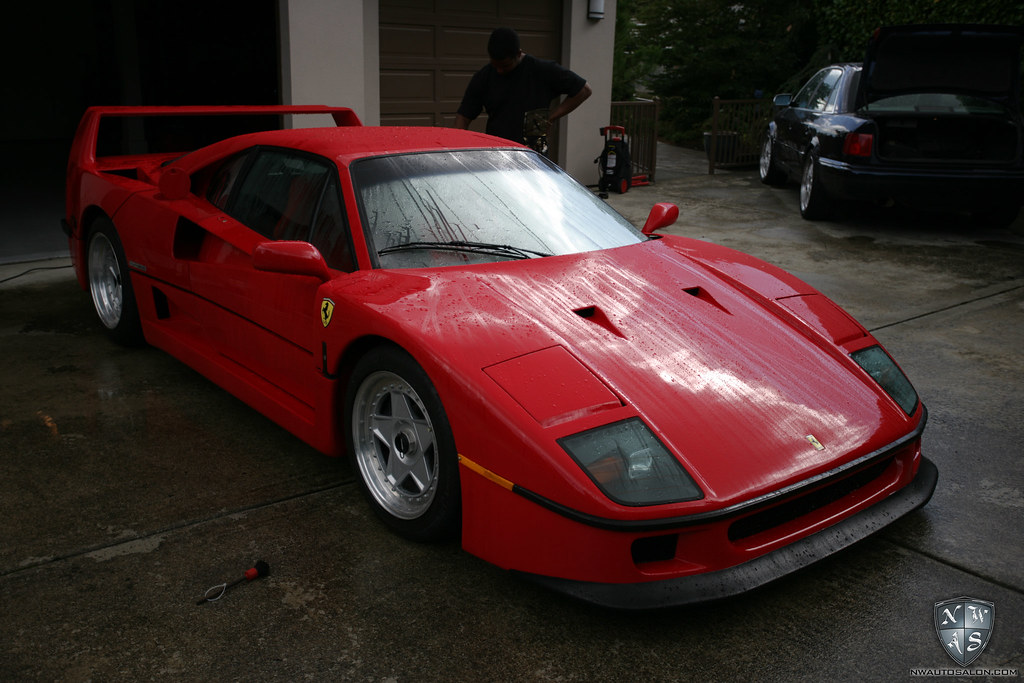
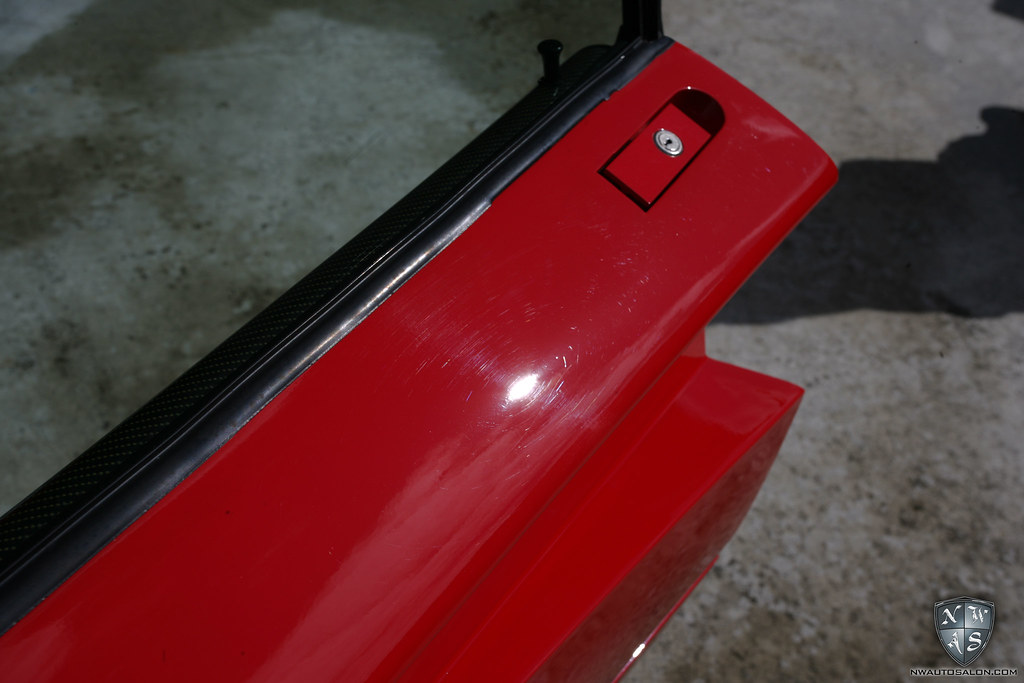

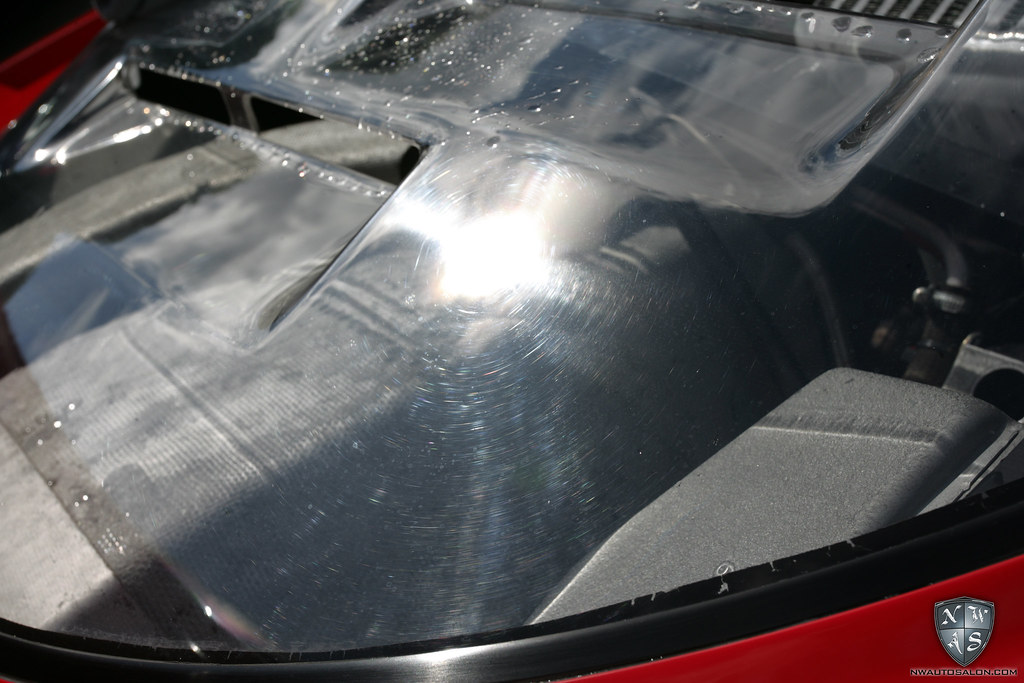
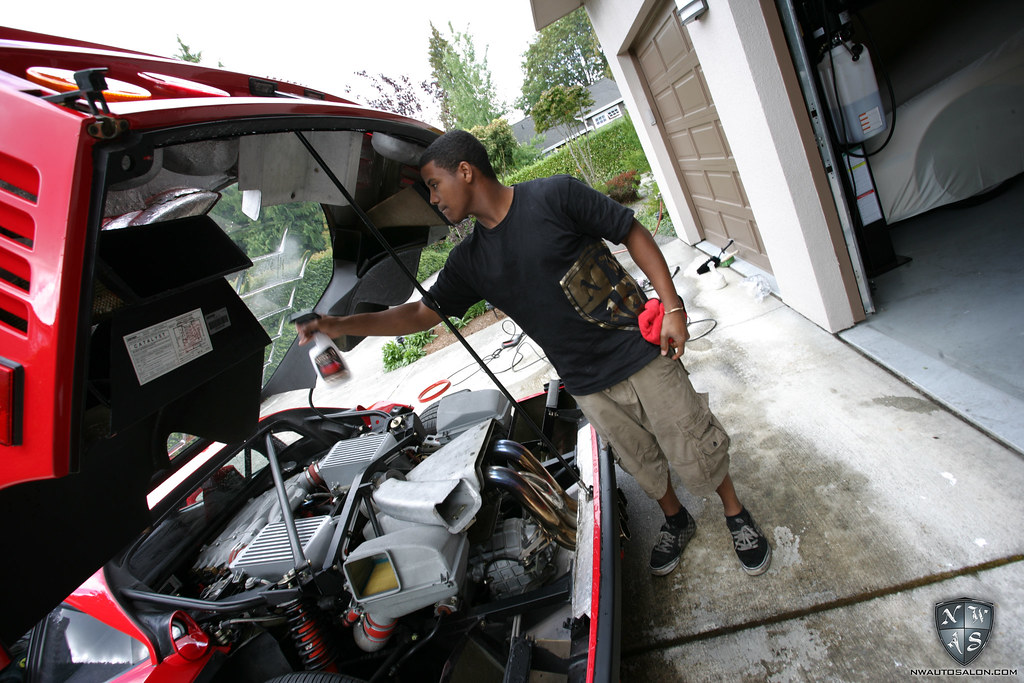

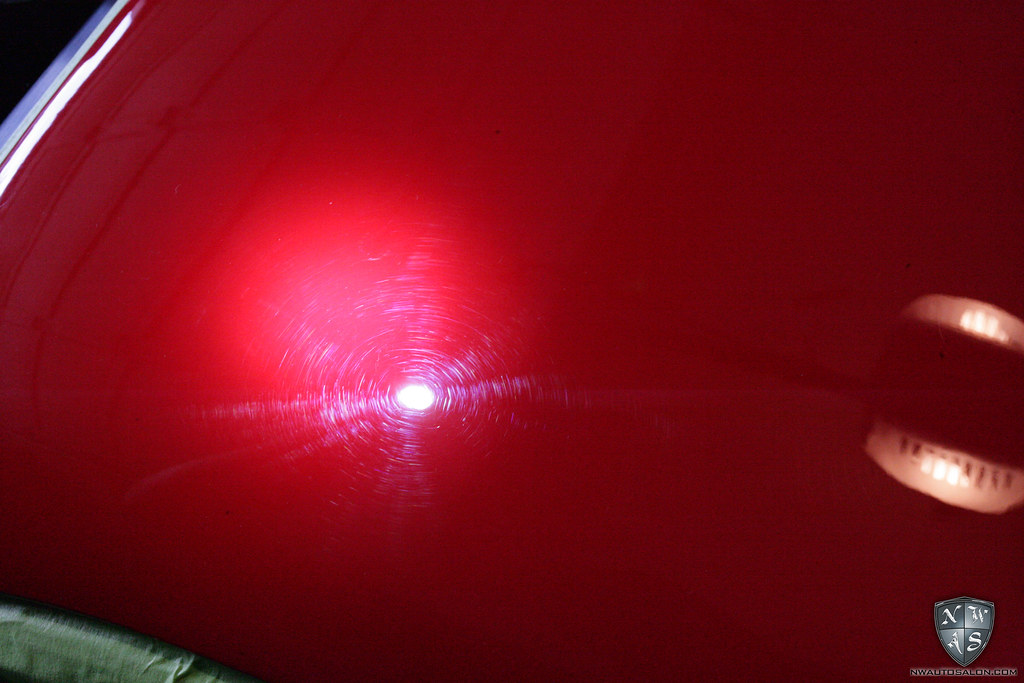

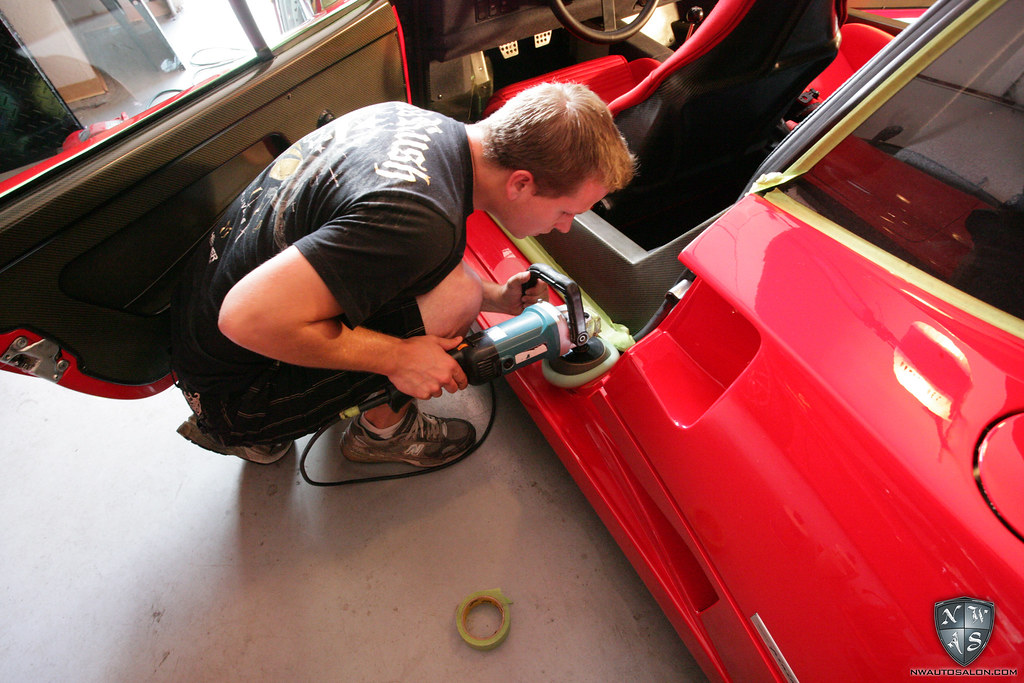
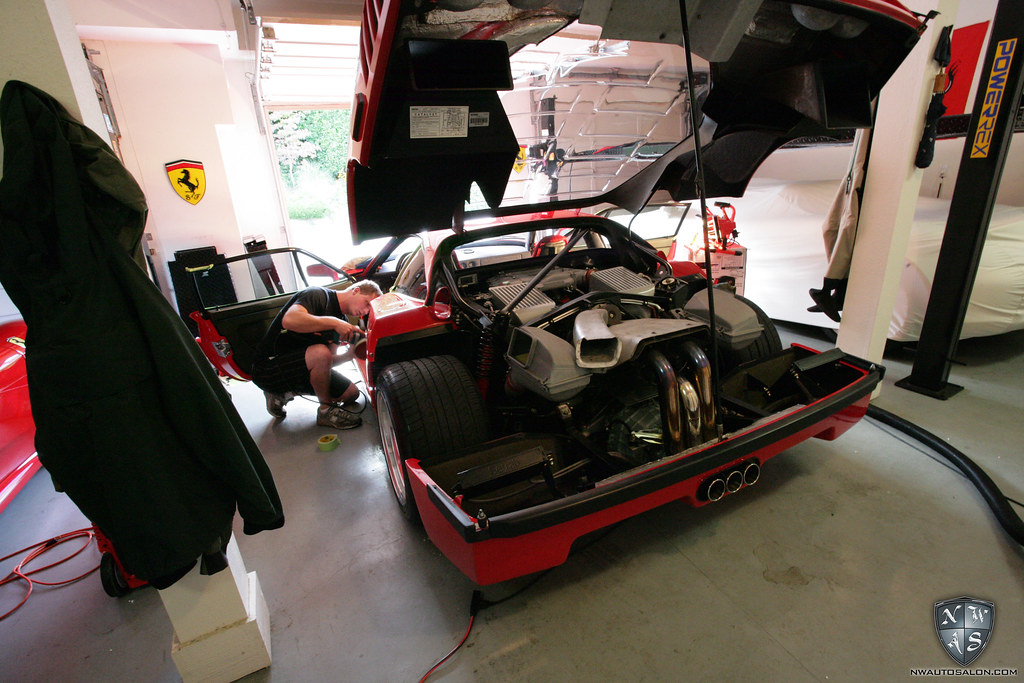

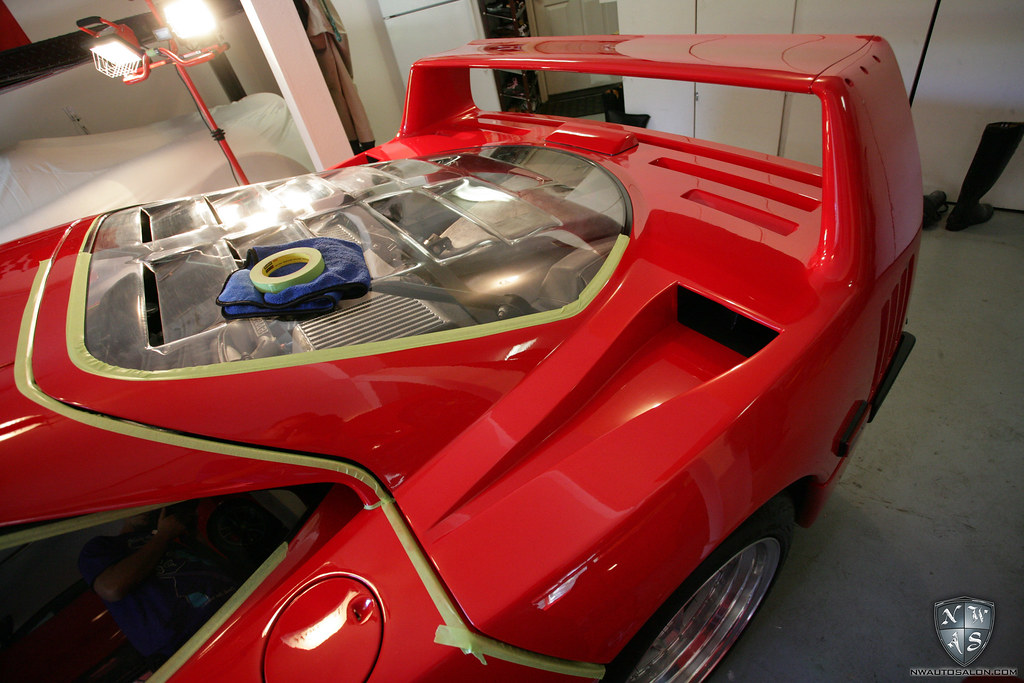
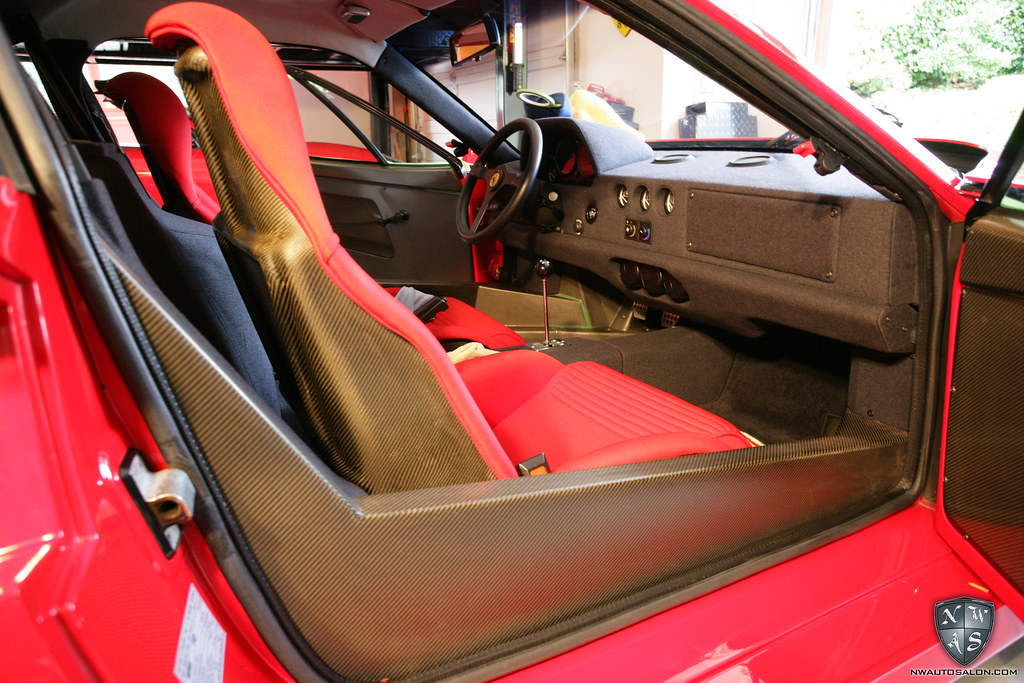
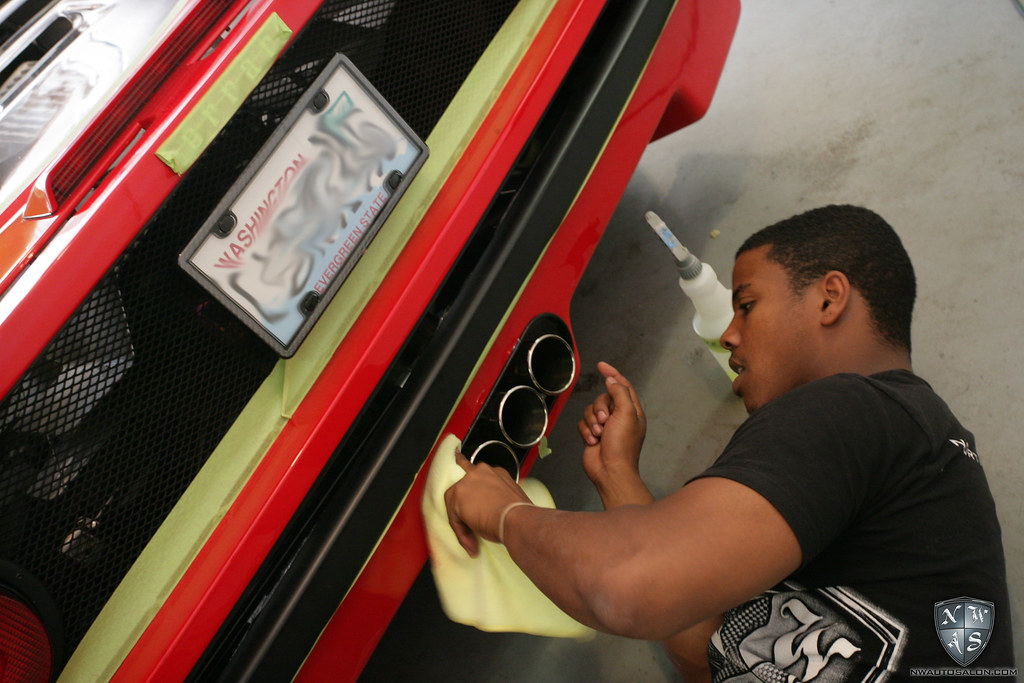
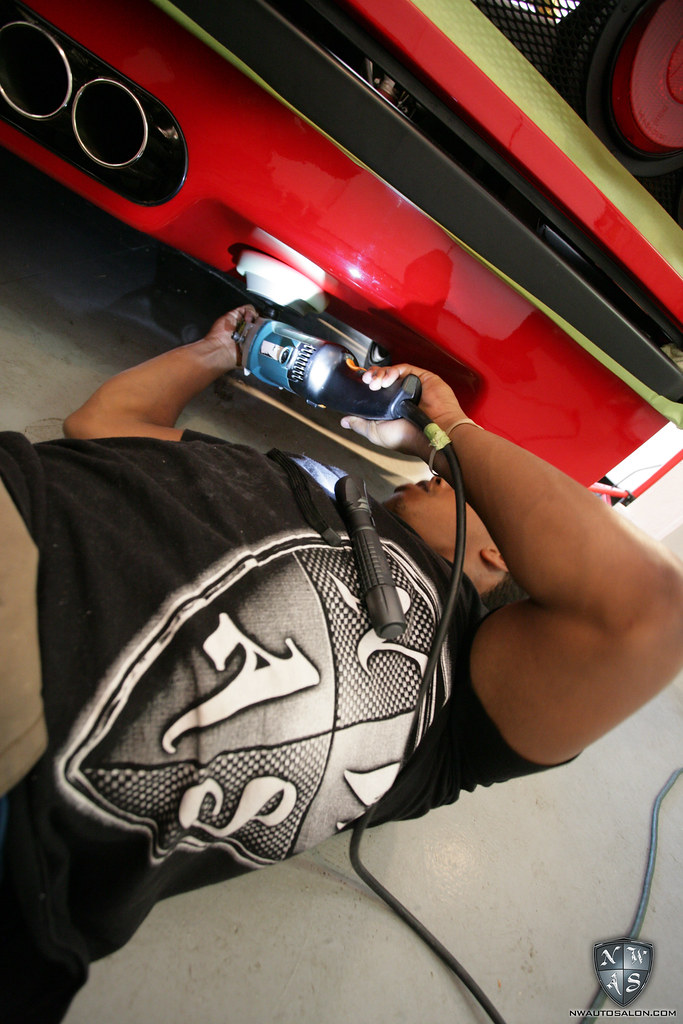
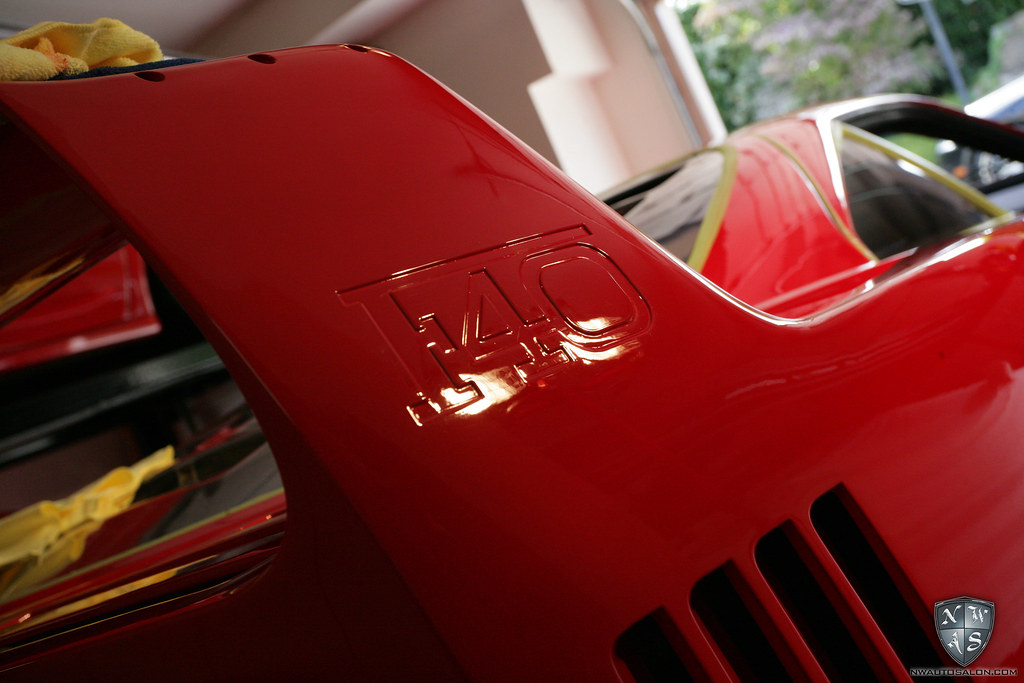
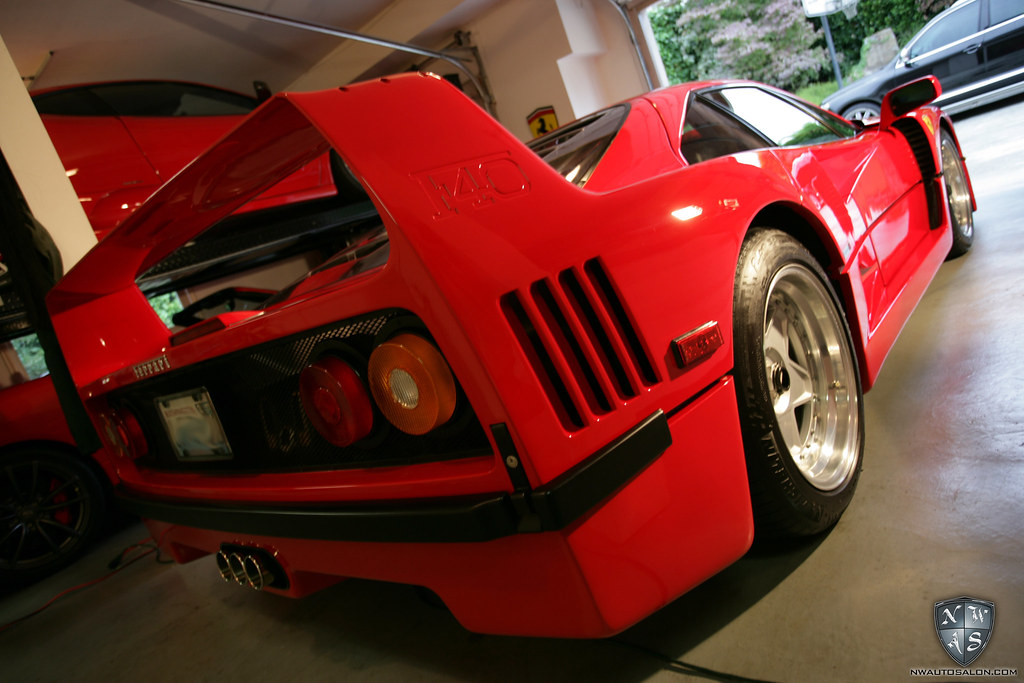
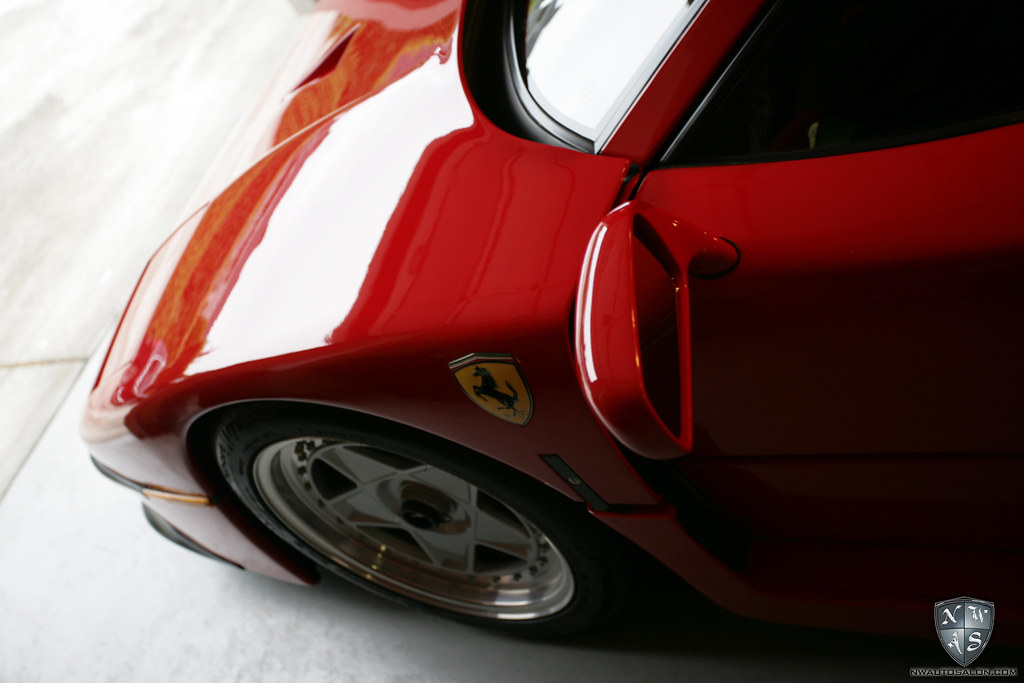
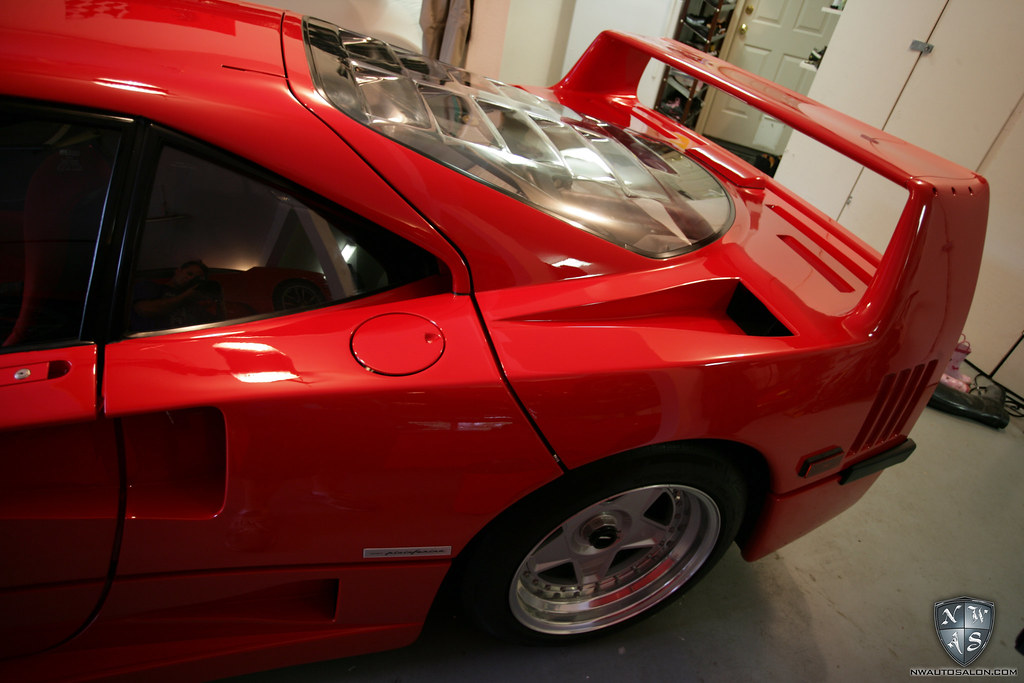
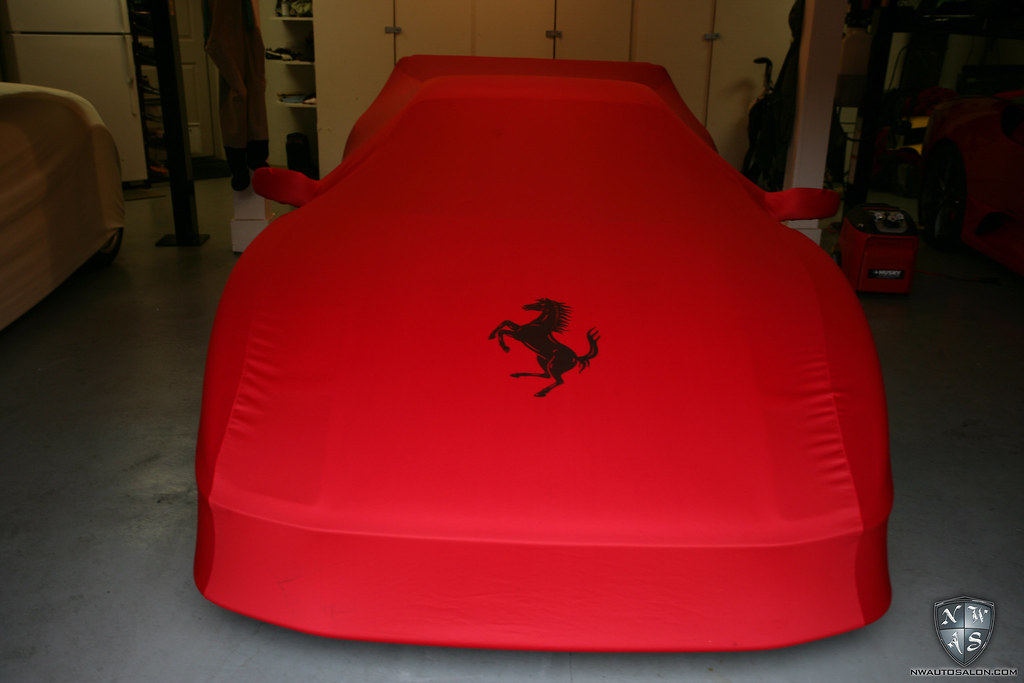
One thought on “Retro Writeup: NWAS Does Eastside Mobile Detail on Rare Red Ferrari F40”